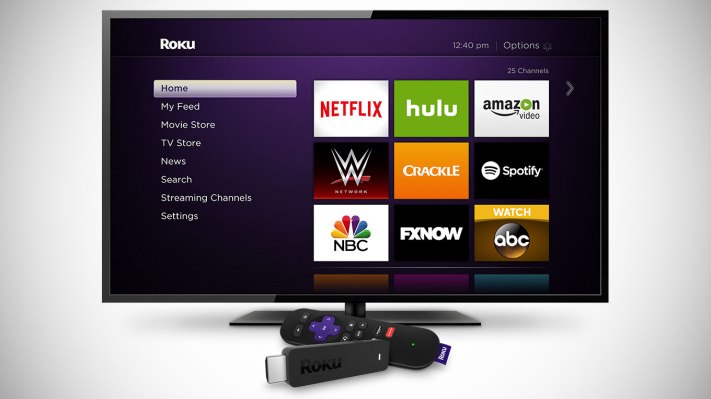Last year, Roku lost a legal battle in Mexico over piracy which resulted in a ban on sales of its devices in the country. Now, that ban has been lifted, the company says, following a favorable ruling from the 11th Collegiate Court in Mexico City. This will allow Roku to resume sales of its devices in Mexico in the coming weeks.
The issue first arose when Cablevision, the cable TV operator owned by Mexican media giant Televisa, took Roku to court alleging that Roku devices were being hacked to allow users to watch pirated channels.
The problem was that Roku’s platform – unlike, say, the more locked-down Apple TV – supports something called “private channels.” This feature was originally intended as a way for developers to test their channels before making them publicly available on Roku’s Channel Store. But many began to use private channels to stream illegal content, like cable TV programming, for example.
Roku was effectively benefiting from these channels and their popularity, while also able to turn a blind eye to the piracy problem. The channels, after all, were private – and what they did was seemingly not Roku’s concern or its business. Until, of course, it was.
The same issue also plagues Amazon Fire TV and Fire TV Stick devices today. Entire businesses have sprung up around selling “hacked” Fire Sticks, as consumers like to call them. These are devices that have been preloaded with software that allows users to stream illegal content, including TV shows and movies – even those still in theaters.
After its ban in Mexico, Roku began to take the piracy problem more seriously. It began cracking down on private channels, loading up warnings on screen that channels have to abide by Roku’s terms and distribute legal content. Some channels decided to exit Roku on their own, and others were booted by the device maker in the days that followed, including popular sources for pirated or illegally streamed content like XTV, USTVNOW, Channel Pear, and others.
Roku had argued at the time of the original ruling that it was not enabling the distribution of pirated content on its platform, and was, in fact, taking channels down when found. It said it planned to fight the ruling.
With its victory now in hand, Roku says devices will soon return to stores in Mexico.
“Streaming is the future of TV. It offers a great opportunity for consumers in Mexico by providing more entertainment choices, the ability to watch TV on their schedules and more value for money,” said Roku CMO Matthew Anderson, in a statement. “We are grateful for our customers in Mexico who, despite the sales ban, continued to stream more and more hours; and for our retail partners and content providers who supported us throughout this past year. We look forward to launching the latest Roku devices in Mexico soon and giving customers an even richer streaming experience,” he added.
“Today’s decision is an important victory for Roku and its Mexican distributor, Latamel Distribuidora, S. de R.L. de C.V. and Mexican retailers in the legal battle against an improper ban on sales of its popular streaming players in Mexico,” Roku General Counsel Stephen Kay also noted. “We are pleased with the Collegiate Court’s decision and look forward to continuing to build Roku’s TV streaming business in Mexico,” he said.
Roku’s stock jumped several percentage points in late trading after its announcement Tuesday, and continued to climb in premarket trading as well.
